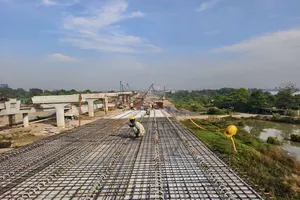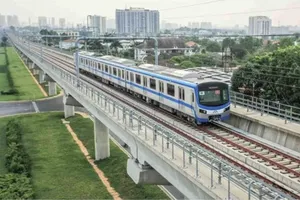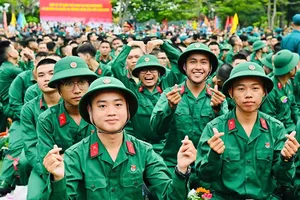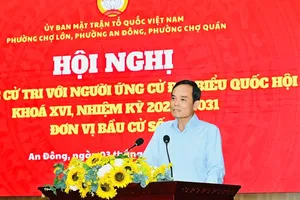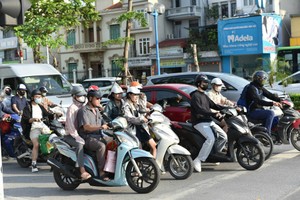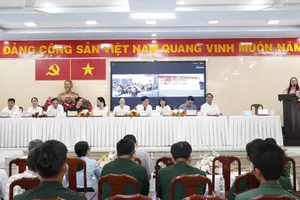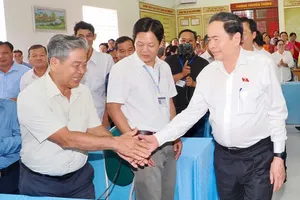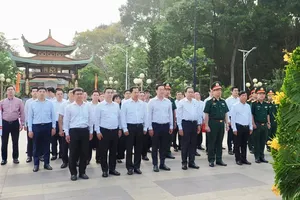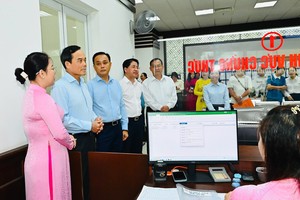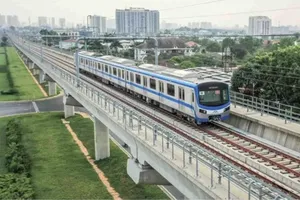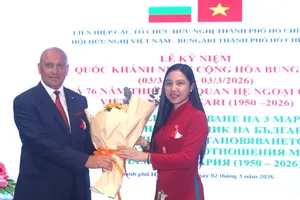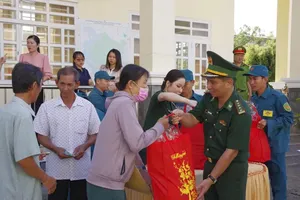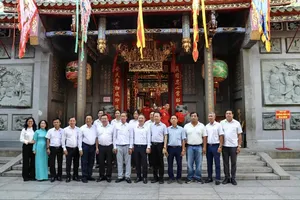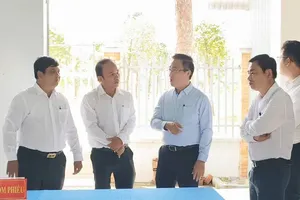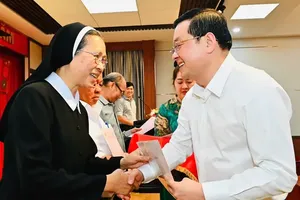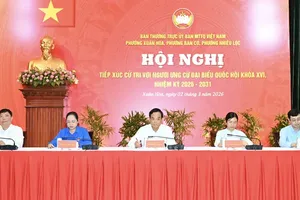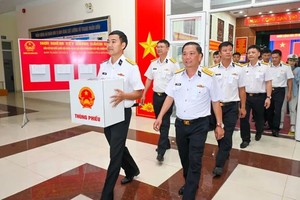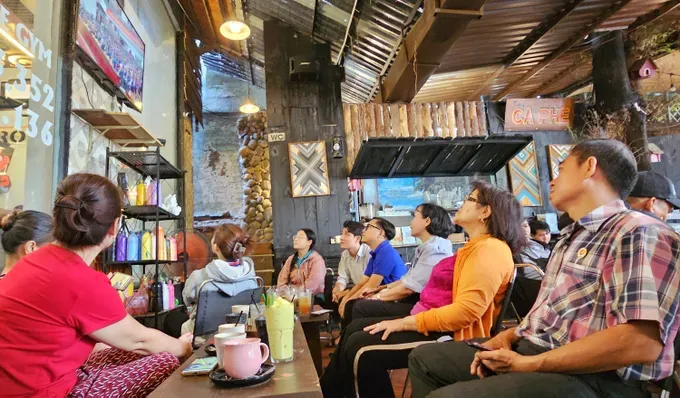
At a community gathering point in Con Dao Special Zone, the atmosphere was electric. As soon as the live broadcast of the closing ceremony concluded, Nguyen Anh Tai, along with a group of retired party members, launched into a spirited discussion about the Resolution’s content. The lively and sincere exchange was a clear sign that the Congress’s message was already resonating deeply with the public.
For Nguyen Anh Tai, who has spent 45 years living and working on this special zone, the moment was particularly poignant. “I remember when this island had just over 2,000 people,” he recalled nostalgically. “Getting here was a real struggle, with only two old ships making the journey. There was virtually no infrastructure, and life was incredibly hard.”
In the celebratory mood following the Congress, he shared his hopes for the future. “This Congress carves out a clear path for our special zone,” he explained, “for Con Dao Island to become a green, smart destination that both develops tourism and honors its sacred history.”
He also said he was particularly struck by the Resolution’s focus on building a comprehensive, advanced Vietnamese culture that is rich in national identity. It’s a vision, he believes, that will provide a sustainable foundation for Con Dao’s own humane and harmonious development.
“Today, the people of Con Dao aren’t just proud residents of a sacred land; we also carry the compassionate, dynamic, and creative culture of HCMC within us. The spirit of ‘HCMC with the country, for the country’ has truly started to spread here, shaping how we think, work, and live.”
From an administrative standpoint, the Resolution’s focus on digital governance is a major point of excitement. According to Deputy Director Le Khanh Due of the Phu Giao Commune Public Administration Service Center, the current public service center model has already been a game-changer for administrative reform. “It’s a reliable bridge,” he noted, “helping us build a more professional, modern, and transparent public service.”
The Deputy Director has his eyes on one key task for the new term, namely to establish a full digital government by 2030. “I have high hopes that, on this foundation, our administrative reform work will take a quantum leap forward in the next term,” he stated. “It’s about modernizing governance and enhancing our operational capacity using real-time technology and data.”
He shared a firm belief that once a smart, modern, and synchronous management system has been fully deployed, HCMC will rapidly achieve the goals set by the Resolution, creating a solid foundation for the happiness of its people.
With a pioneering spirit, the business community is also eagerly anticipating that the breakthrough policies outlined in the Resolution will be swiftly put into practice.
Permanent Vice Chairman Nguyen Tri Quang of the HCMC Young Businesspeople Association, pointed to the ambitious economic targets, including an average annual GRDP growth of 10-11 percent, GRDP per capita reaching US$14,000 - 15,000 by 2030, and a digital economy accounting for 30-40 percent of GRDP by 2030, as clear evidence of the city’s determination.
He stressed the need for a concrete roadmap to establish HCMC as a global financial center. “Finance is the lifeblood of the economy,” he argued. “Only with a strong financial hub can we solve the capital puzzle and create momentum for sustainable growth.”
The Vice Chairman also proposed that the city must fast-track the completion of its transportation network, especially the urban railway system. “If finance is the lifeblood,” he declared, “then transportation is the very backbone of a super-metropolis.” He believes that only with a strong backbone can HCMC fully leverage its strengths in industry, finance, tourism, and logistics.
For residents in the city’s outlying areas, the Resolution’s emphasis on social inclusion has been a source of great comfort. For Nguyen Tan Phuc, a resident of Long Huong Ward, the document’s commitment to putting people at the center of every policy, especially its “leave no one behind” spirit, stands out.
“After the administrative merger, our social security policies saw many positive changes,” he shared. “But life and income, especially for those of us on the periphery, remain challenging.” That’s why the Resolution’s focus on improving material and spiritual well-being has been so uplifting for the community.
He pointed to specific targets, such as free annual health check-ups from 2026, an electronic health record to be managed throughout the life cycle, universal health insurance by 2030, social insurance participation of the workforce at working age reaching 62 percent, the rate of labor with college and university degrees reaching at least 24 percent, and the goal to eliminate poverty according to the city’s standard by 2030.
According to Nguyen Tan Phuc, these concrete commitments demonstrate the Party’s genuine concern for every single citizen, regardless of where they live. “However,” he added, “for the Resolution to be more than just words on paper, it’s crucial that projects are implemented quickly so that people can actually start benefiting from these essential services.”
